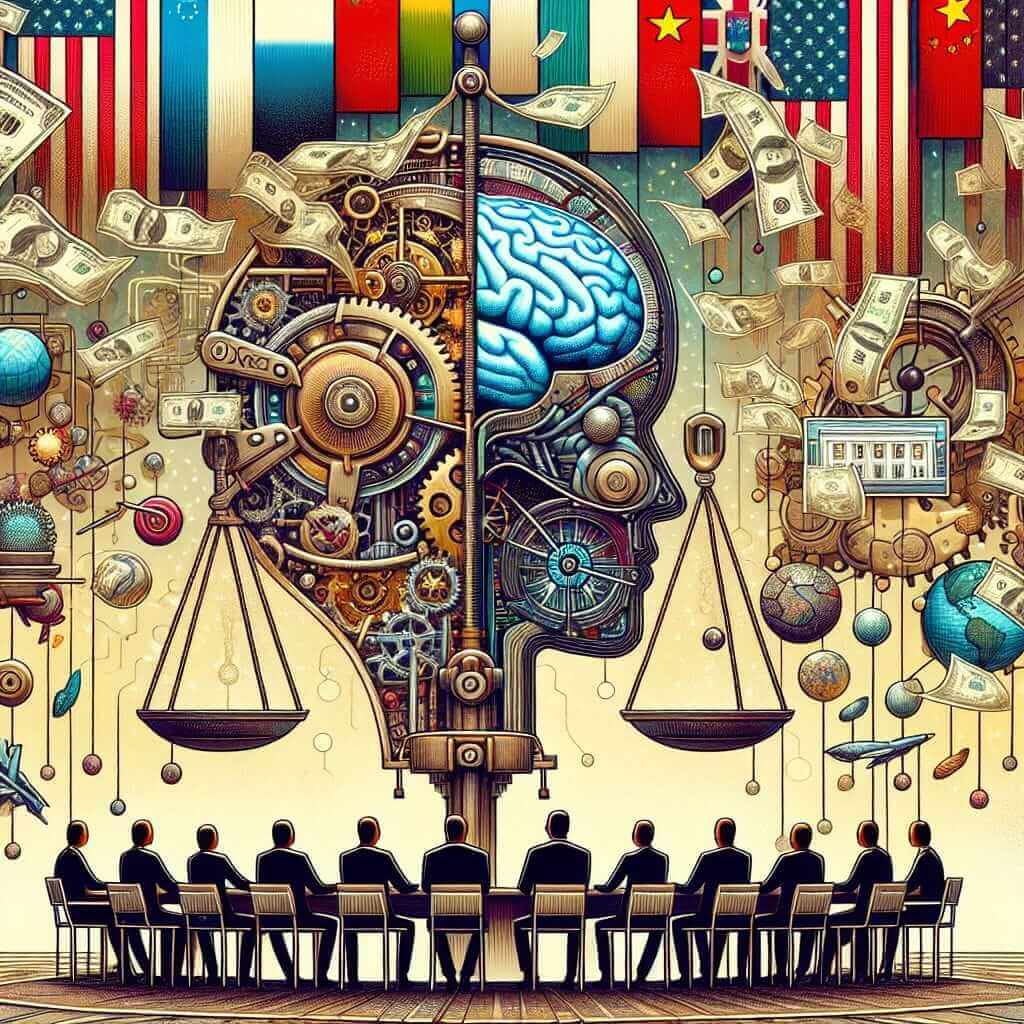The IELTS Reading test is a crucial component of the IELTS examination, requiring candidates to read passages and answer questions based on the information presented. Topics can range from science and technology to art and history. A trending and timely subject, such as “The Challenges of Regulating Artificial Intelligence,” offers a blend of complexity and interest—ideal for IELTS preparation. Understanding the challenges of regulating AI can provide a profound insight into contemporary issues and their implications, making it a valuable reading exercise. This topic has sporadically appeared in IELTS tests, reflecting its increasing significance in current affairs.
Reading Passage
The Challenges of Regulating Artificial Intelligence
The complexities of regulating artificial intelligence (AI) stem from the rapid evolution of technology and the diverse applications of AI systems across various sectors. Governments and regulatory bodies worldwide face numerous challenges in establishing a coherent regulatory framework for AI. These challenges range from ethical considerations to technical difficulties, posing significant hurdles.
Ethical Dilemmas
One of the primary challenges in regulating AI involves the ethical implications of automation and decision-making processes. AI systems, often designed to make independent decisions, can raise concerns about accountability and transparency. For instance, if an AI system makes a crucial mistake in healthcare, determining culpability can be problematic. The lack of transparency in how AI algorithms function exacerbates these issues, making accountability more complex.
Technical Challenges
AI technology is constantly evolving, rendering static regulatory frameworks inadequate. The fast pace of technological advancement means that any regulations could soon become outdated. Additionally, the inherent complexity of AI systems makes it difficult for regulators to comprehend and oversee these technologies effectively. This problem is further compounded by the necessity for international cooperation, as AI technology often transcends national boundaries.
Economic and Social Impact
AI has a considerable impact on the economy and society. It is capable of driving substantial economic growth but also poses risks such as job displacement due to automation. Regulating AI to balance economic benefits with social welfare presents a significant challenge. Policymakers must ensure that regulations do not stifle innovation while simultaneously protecting public interests.
International Standards
Establishing international standards for AI regulation is another daunting task. Different countries may have varying perspectives on privacy, security, and ethical use of AI. Creating a harmonized regulatory approach that accommodates these differences requires significant diplomatic effort and cooperation among nations.
In summary, the multifaceted challenges of regulating artificial intelligence demand a dynamic and collaborative approach. Ethical dilemmas, technical difficulties, economic and social impacts, and the need for international standards all play pivotal roles in shaping the regulatory landscape of AI.

Questions
Multiple Choice
-
What is one ethical challenge mentioned in regulating AI?
a) Cost of development
b) Complexity of technology
c) Accountability of decisions
d) International diplomacy -
Why are static regulatory frameworks inadequate for AI?
a) They are too complex
b) They become outdated quickly
c) They are universally accepted
d) They lack ethical considerations -
What is a significant social impact of AI mentioned in the passage?
a) Decreased productivity
b) Job displacement
c) Increased transparency
d) Improved diplomatic relations
True/False/Not Given
- AI systems are designed to always operate without human oversight.
- Economic growth is a negative outcome of AI according to the passage.
- Harmonizing international regulations on AI is considered an easy task.
Summary Completion
Fill in the blanks with NO MORE THAN TWO WORDS from the passage.
7. Regulating AI involves ____ due to the autonomous decision-making capabilities of AI systems.
8. The ____ pace of AI technology means regulations can become outdated quickly.
9. ____ must balance innovation with public protection in AI regulations.
Answers
Multiple Choice
- c) Accountability of decisions
- b) They become outdated quickly
- b) Job displacement
True/False/Not Given
- False
- False
- Not Given
Summary Completion
- ethical implications
- fast
- Policymakers
Common Errors in Reading IELTS
- Misinterpreting Questions: Ensure you fully understand what the question is asking. Keywords and context are crucial.
- Overlooking Details: Small details can make a big difference in your answers. Pay close attention to dates, figures, and specific terms.
- Ignoring Synonyms: The passage may use synonyms rather than repeating exact words from the questions. Stay alert for variations in wording.
Vocabulary
- Culpability (noun) /ˌkʌlpəˈbɪləti/: Responsibility for a fault or wrong; blame.
- Algorithm (noun) /ˈælɡəˌrɪðəm/: A process or set of rules followed by a computer in calculations or problem-solving.
- Diplomatic (adjective) /ˌdɪpləˈmætɪk/: Involving the management of relationships between countries.
Grammar
Complex Sentences: These sentences contain one independent clause and at least one dependent clause, connected by conjunctions (e.g., “because,” “since,” “although”).
Example: “Regulating AI is essential because the technology impacts both economy and society.”
Tips for Higher IELTS Reading Scores
- Practice regularly with different types of texts.
- Focus on time management; practice under timed conditions.
- Develop a strategy for each question type (skimming, scanning, etc.).
- Enhance your vocabulary by reading widely and learning new words.
For an illustrative image related to this topic: